Venezuela Municipal Elections 2025: A Triumph of Peace, Participation, and Democratic Resilience
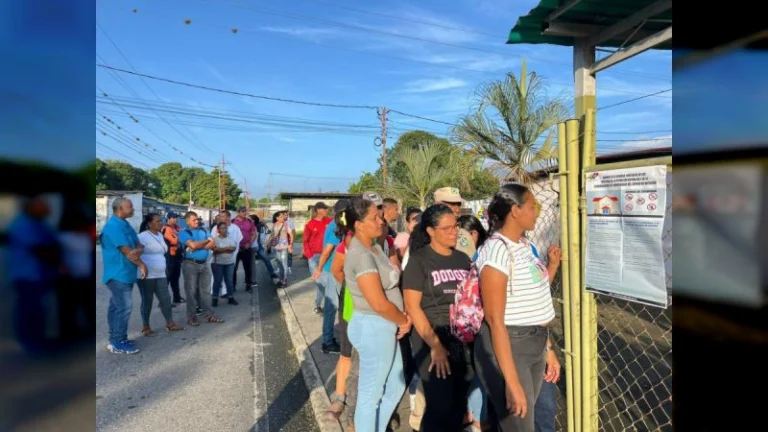
Venezuela municipal elections 2025: Citizens vote in a peaceful, high-participation electoral process across the nation 27/7/2025 Photo: VTV
July 27, 2025 Hour: 11:30 am
Venezuela municipal elections 2025: Venezuela celebrates a peaceful, high-turnout electoral process as over 21.5 million citizens vote in the 2025 municipal elections and National Youth Consultation—proving the strength of participatory democracy.
Related: 7 Powerful Reasons Why Venezuela’s 2025 Municipal Elections and Youth Consultation Are a Historic Day of Unity and Celebration
7 Reasons Why Venezuela’s 2025 Municipal Elections Are a Triumph of Peace, Participation, and Democratic Resilience
On July 27, 2025, Venezuela held its 33rd electoral process since the beginning of the Bolivarian Revolution—this time, the municipal elections of 2025, where over 21.5 million citizens voted to elect 335 mayors and 2,471 councilors, including 69 representatives from Indigenous communities. Far from being a routine vote, the day unfolded as a national celebration of democracy, marked by calm, massive participation, and cross-spectrum political engagement—a powerful rebuttal to narratives of instability and division.
The Venezuela municipal elections 2025 were not just about choosing leaders—they were a collective affirmation of peace, sovereignty, and participatory democracy.
From early morning, more than 15,000 voting centers and 20,410 voting tables opened across the country, with long lines forming in states like La Guaira, Miranda, Anzoátegui, and Zulia. The atmosphere was festive, not tense—families voted together, youth danced near polling stations, and local leaders called the day a “democratic festival.”
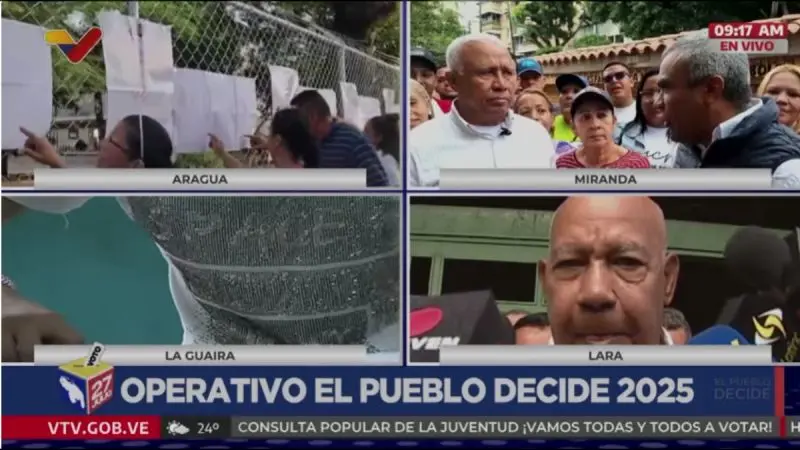
The National Electoral Council (CNE) ensured transparency and efficiency, deploying the Plan República—a joint civilian-military security operation—and launching a Telegram bot (@RECNE_bot) that allowed voters to instantly locate their polling stations using their ID numbers. This digital innovation improved accessibility and reduced confusion, especially for first-time and rural voters.
Venezuela Municipal Elections 2025: A Nationwide Exercise in Peace and Protagonism
The electoral process was not only orderly—it was inclusive and deeply participatory. In Barinas, local media reported a climate of tranquility and civic pride, with strong youth turnout in the parallel National Youth Consultation, a groundbreaking initiative that allowed young people to vote on community projects they had designed in communal assemblies.
This was not a top-down election—it was a grassroots mobilization, where communities shaped their own futures.
In La Guaira, Governor José Alejandro Terán praised the early turnout at 278 voting tables across 211 centers.
“Voting is betting on peace, strengthening democracy, and resolving our differences through constitutional means,” he said on the program “Con el Mazo Dando.”
He invited citizens to join a night celebration in Plaza Vargas, turning the electoral day into a cultural and civic festival.
Local mayor José Manuel Suárez credited the Bolivarian National Armed Force (FANB), the CNE, and the people for ensuring a peaceful process.
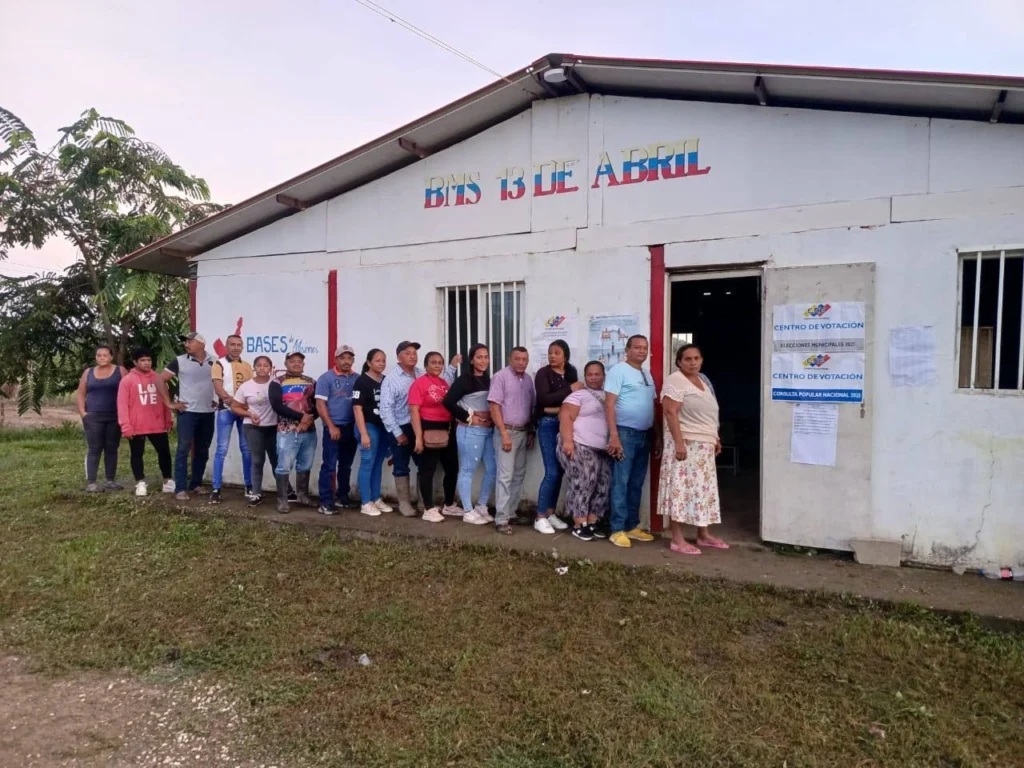
“We vote to secure the continuity of a free, democratic, and sovereign homeland,” he affirmed.
External Link: CNE Official Portal – Venezuela Elections 2025
External Link: UNDP – Participatory Democracy in Latin America, 2025 Report
Youth Take the Lead: The National Youth Consultation as a Democratic Innovation
Alongside the municipal vote, the National Youth Consultation gave over 1.7 million young Venezuelans a direct voice in shaping their communities. In Bolívar’s Caroní municipality, candidate Yanny Alonzo highlighted that more than 1,700 youth projects had been proposed in territorial assemblies—ranging from urban gardens to tech hubs.
The consultation is not a simulation—it’s a real mechanism for youth to co-govern and co-create.
In Anzoátegui, Governor Luis José Marcano shared a personal moment: his 16-year-old daughter voted for the first time.
“This is progress,” he said emotionally. “This is how democracy grows.”
The consultation, aligned with the government’s 7 Transformations Plan (7T), allows youth to propose and vote on initiatives in education, culture, economy, and environment—with selected projects eligible for state funding. It’s a living model of direct democracy, proving that young people are not just the future—they are present and powerful.
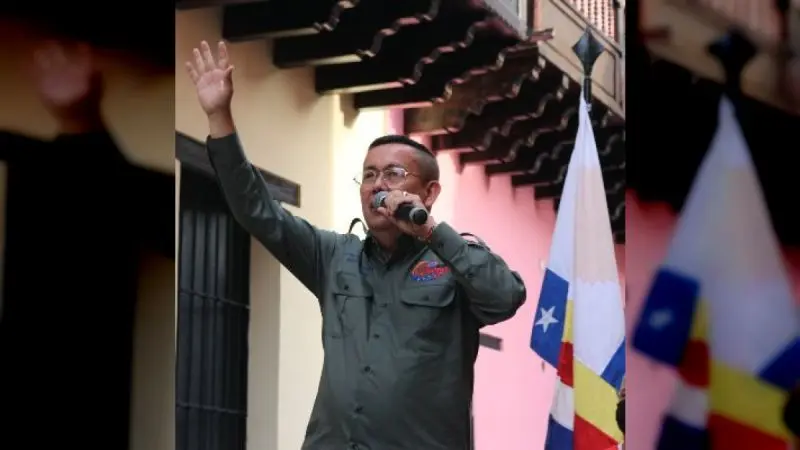
Unity in Diversity: Opposition Voices Join the Call to Vote
One of the most significant aspects of the day was the broad political consensus on the importance of participation. Even from the opposition, leaders rejected calls for abstention and urged citizens to vote.
José Gregorio Correa, opposition deputy, stated:
“Abstention opens the door for others to decide for you. Voting is a necessity for the country.”
He praised the youth consultation as a legitimate space for democratic inclusion.
Antonio Ecarri, leader of the Alianza del Lápiz party, called abstention a “great fraud and an act of cowardice.”
“Voting isn’t about political colors—it’s about defending local leadership that impacts people’s daily lives,” he said, emphasizing that local governance affects schools, roads, and healthcare.
When even opponents agree on participation, it signals a mature democracy.
This rare moment of unity underscores that, despite ideological differences, many Venezuelans agree on one thing: democracy must be exercised, not abandoned.
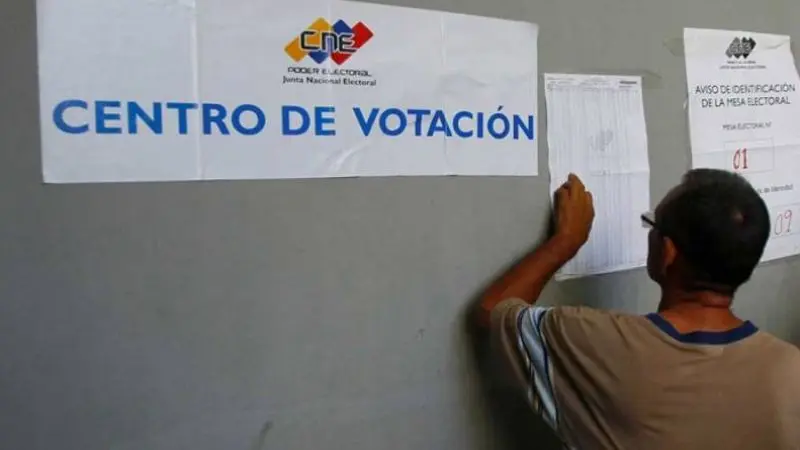
Geopolitical Context: A Democratic Model Under Scrutiny
At a time when democratic erosion is rising globally, Venezuela’s 2025 municipal elections offer a different narrative—one of high turnout, institutional continuity, and popular protagonism.
While some international actors question Venezuela’s electoral integrity, the reality on the ground tells a story of mass mobilization, trust in institutions, and civic joy.
The CNE, often criticized in the past, has worked to modernize and open the process—from digital tools to real-time results transmission. The Plan República, involving over 150,000 personnel, ensured security without militarization, a model studied by regional electoral bodies.
Moreover, the inclusion of 69 Indigenous councilor positions reflects a commitment to plurinational representation, a key demand of Venezuela’s original 1999 Constitution.
Conclusion: A Day of Peace, Power, and Popular Celebration
July 27, 2025, will be remembered not for the winners or losers, but for the spirit in which the vote was cast. Across Venezuela, from Barinas to Zulia, Caracas to Anzoátegui, citizens exercised their right in peace, dignity, and unity.
The Venezuela municipal elections 2025 were more than an electoral event—they were a national affirmation of the country’s resilience, sovereignty, and deep-rooted culture of participation.
As Gian Carlo Di Martino, mayoral candidate in Maracaibo, put it:
“This process consolidates communal projects and aligns all levels of government. It is the path to peace, democracy, and popular power.”
In a world where democracy is often under threat, Venezuela showed that it can be lived, celebrated, and defended by the people themselves.
With high turnout, youth engagement, and broad political participation, the message is clear: the Venezuelan people are not spectators—they are the protagonists of their destiny.
External Link: Organization of American States – Electoral Observation Mechanisms
Author: JMVR
Source: VTV

